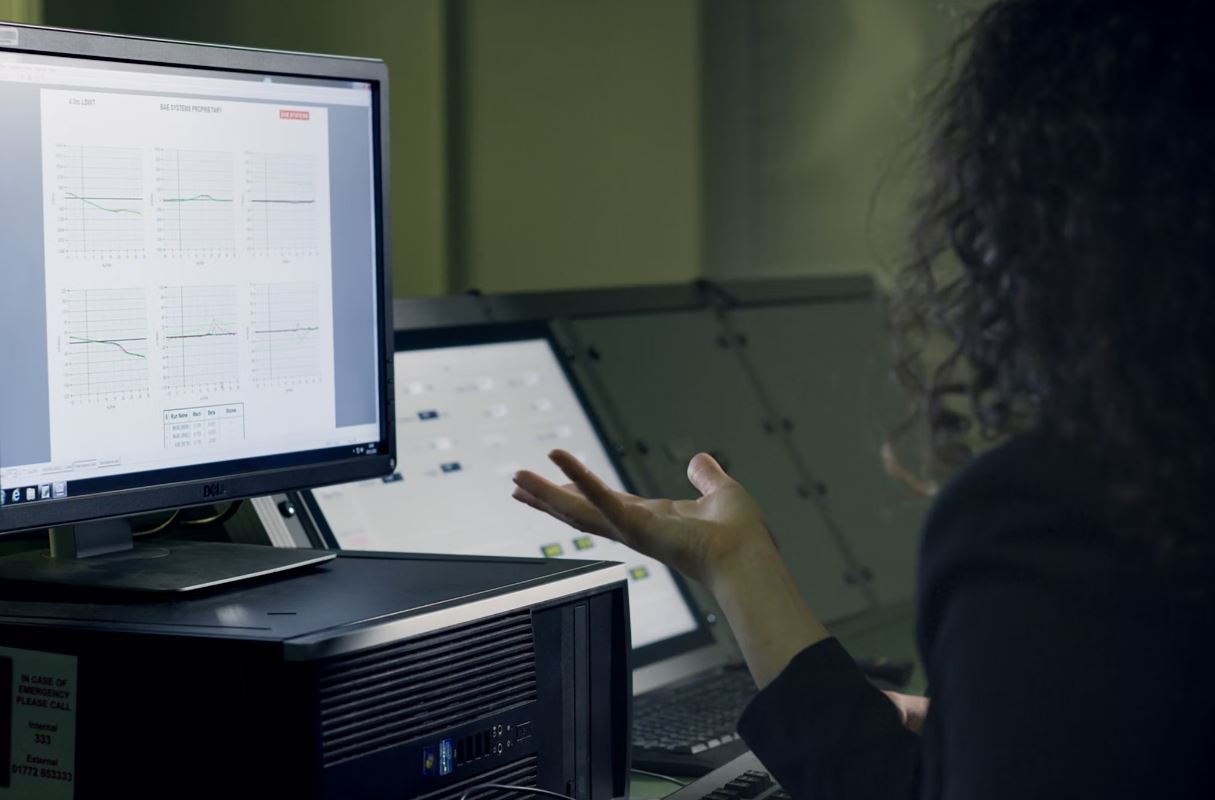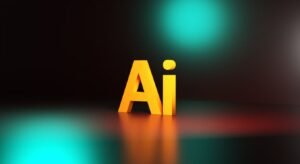Artificial Intelligence
Artificial Intelligence (AI) is a branch of computer science that focuses on the creation of intelligent machines that can perform tasks without human intervention. With the ability to learn from experience, AI has the potential to revolutionize various sectors, including healthcare, finance, transportation, and more.
Key Takeaways
- AI is a branch of computer science focused on creating intelligent machines.
- AI has the potential to revolutionize multiple industries.
- Machine learning and deep learning are key components of AI.
- Natural Language Processing (NLP) enables machines to understand and interpret human language.
- AI faces ethical and societal challenges that need to be addressed.
The Components of AI
Machine learning and deep learning are essential to AI. Machine learning involves training systems to learn from data and improve their performance over time, while deep learning focuses on neural networks and complex patterns recognition.
By leveraging vast amounts of data, machine learning algorithms can detect subtle patterns and make predictions.
The Role of Natural Language Processing
One of the most fascinating aspects of AI is Natural Language Processing (NLP), which allows machines to understand and interpret human language. NLP enables chatbots, voice assistants, and language translation systems.
With NLP, machines can comprehend the nuances of human conversation and respond accordingly.
The Implications of AI
- Automation: AI can automate repetitive tasks, increasing efficiency and productivity.
- Personalization: AI algorithms can analyze user data to deliver personalized experiences and recommendations.
- Medical Advances: AI has the potential to improve diagnosis accuracy, drug development, and patient care.
AI in Daily Life
| Application | Examples |
|---|---|
| Social Media | Newsfeed algorithms, targeted advertising |
| Smart Devices | Voice assistants, virtual home assistants |
Every day, we interact with AI-powered systems that enhance our lives.
Addressing Ethical Considerations
As AI advances, it poses ethical and societal challenges that must be addressed. This includes data privacy, algorithmic bias, job displacement, and the potential for autonomous weapons.
Ensuring ethical AI use is crucial for creating a positive impact and avoiding unintended consequences.
Future of AI
- Advancements in AI are set to continue, with improved algorithms and computing power.
- AI will play a vital role in shaping the future of work, healthcare, and other industries.
- Collaboration between AI and humans will become increasingly prevalent.
Conclusion
Artificial Intelligence has the potential to revolutionize our lives and transform various industries. As technological advancements continue, addressing ethical considerations and fostering collaboration between humans and AI will be crucial for harnessing the full potential of this exciting field.

Common Misconceptions
AI will Replace Humans
- AI is designed to assist and augment human capabilities, not replace them entirely.
- AI excels at performing repetitive and mundane tasks, allowing humans to focus on more complex and creative endeavors.
- AI relies on human input and supervision to function effectively and make decisions.
AI is All-Knowing and Infallible
- AI systems are only as good as the data they are trained on, and biases in the data can lead to skewed results.
- AI can make mistakes and encounter limitations when faced with novel or ambiguous situations.
- AI systems require continuous monitoring and updating to maintain accuracy and address evolving challenges.
AI is an Autonomous Superintelligence
- AI operates within well-defined bounds and lacks general human-like intelligence.
- AI systems are designed for specific tasks and lack the ability to transfer knowledge across domains.
- AI cannot reason or understand the world in the same way as humans, but rather relies on statistical patterns and probabilities.
AI Will Take Over Jobs and Result in Mass Unemployment
- While some jobs may be automated by AI, new jobs will also be created in fields related to AI development and implementation.
- AI has the potential to improve productivity and create new opportunities, leading to overall economic growth.
- Reskilling and upskilling programs can help individuals adapt to emerging trends and job requirements.
AI is a Dystopian Threat to Humanity
- AI technology has the potential to bring about positive change and benefits to society.
- Robust ethical frameworks and regulations can be implemented to ensure responsible and beneficial AI deployment.
- Collaboration between humans and AI can lead to advancements in various fields, including healthcare, transportation, and scientific research.

AI Applications in Healthcare
Artificial intelligence has revolutionized the healthcare industry, enabling faster and more accurate diagnoses, personalized treatment plans, and advanced research. The following table highlights some of the key applications of AI in healthcare:
| Application | Description |
|---|---|
| Medical Imaging | AI algorithms can analyze medical images such as X-rays, MRIs, and CT scans to detect abnormalities and assist in diagnosing diseases. |
| Drug Discovery | AI helps identify potential new drugs by analyzing vast amounts of biological and chemical data, reducing the time and cost of development. |
| Virtual Assistants | AI-powered virtual assistants, like chatbots, provide patients with immediate responses to health-related queries and assist doctors in managing patient records. |
| Predictive Analytics | AI algorithms analyze patient data to predict disease progression, evaluate treatment outcomes, and identify at-risk individuals. |
AI in Education
Artificial intelligence has brought about significant advancements in the field of education, enhancing learning experiences and enabling personalized education. The following table provides examples of AI applications in education:
| Application | Description |
|---|---|
| Intelligent Tutoring Systems | AI-powered tutoring systems can adapt to students’ individual learning styles, provide personalized feedback, and track progress. |
| Automated Grading | AI algorithms that grade assignments and exams save time for teachers and provide immediate feedback to students. |
| Smart Content | AI can generate interactive, adaptive content tailored to students’ abilities and learning objectives, enhancing engagement and knowledge retention. |
| Learning Analytics | AI analyzes student data to identify patterns and trends, enabling educators to make data-driven decisions and intervene when needed. |
AI in Finance
Artificial intelligence has transformed the finance sector, automating processes, detecting fraud, and improving financial decision-making. The table below showcases some notable AI applications in finance:
| Application | Description |
|---|---|
| Fraud Detection | AI algorithms analyze vast amounts of transaction data, patterns, and anomalies to identify fraudulent activities and prevent financial losses. |
| Algorithmic Trading | AI-driven trading systems execute trades based on predefined rules, historical data, and real-time market conditions, enabling faster and more efficient trading. |
| Robo-Advisors | AI-powered robo-advisors offer automated investment advice, personalized portfolio management, and financial planning services to individual investors. |
| Credit Scoring | AI models analyze various data points to assess creditworthiness, enabling more accurate credit scoring and loan approvals. |
AI in Transportation
Artificial intelligence has revolutionized the transportation industry, enabling autonomous vehicles, optimizing transportation routes, and enhancing safety. Here are a few examples of AI applications in transportation:
| Application | Description |
|---|---|
| Autonomous Vehicles | AI algorithms enable self-driving cars and trucks, reducing the risk of accidents, optimizing fuel consumption, and improving overall efficiency. |
| Traffic Management | AI systems analyze real-time traffic data to optimize traffic flow, minimize congestion, and suggest alternative routes to drivers. |
| Smart Transportation Systems | AI integrates various elements of transportation infrastructure, such as traffic signals, public transportation, and navigation services, to create efficient and interconnected networks. |
| Predictive Maintenance | AI algorithms analyze sensor data from vehicles to predict maintenance needs, reduce downtime, and optimize maintenance schedules. |
AI in Entertainment
Artificial intelligence has had a transformative impact on the entertainment industry, enhancing content creation, personalizing user experiences, and revolutionizing gaming. The following table showcases some exciting AI applications in entertainment:
| Application | Description |
|---|---|
| Recommendation Systems | AI-powered recommendation systems analyze user preferences, behavior, and content metadata to suggest personalized movies, music, and other forms of entertainment. |
| Virtual Reality | AI algorithms enhance virtual reality experiences by creating realistic environments, simulating human-like interactions, and adapting content based on user reactions. |
| Content Generation | AI can generate engaging content, such as automated news articles, music compositions, and visual artwork, based on patterns and preferences. |
| Realistic Game Characters | AI techniques enable the creation of lifelike game characters with advanced behavior, emotions, and interactions, enhancing the gaming experience. |
Ethical Considerations in AI
As artificial intelligence continues to advance, it is crucial to address various ethical considerations associated with its deployment. The following table highlights some key ethical concerns in AI:
| Concern | Description |
|---|---|
| Privacy and Data Protection | AI systems often handle sensitive personal data, raising concerns about privacy breaches, data security, and potential misuse of information. |
| Algorithm Bias | AI algorithms can be biased, reflecting societal prejudices and perpetuating discrimination in areas such as hiring, lending, and criminal justice. |
| Unemployment and Job Displacement | The automation of certain tasks and jobs by AI technologies may lead to unemployment and displacement of workers, requiring measures for reskilling and job creation. |
| Autonomous Weapons | Concerns arise regarding the use of AI in autonomous weapon systems, raising questions about accountability, ethics in warfare, and civilian safety. |
AI in Environmental Conservation
Artificial intelligence is playing a pivotal role in environmental conservation, aiding in wildlife protection, climate modeling, and sustainable resource management. The table below showcases noteworthy AI applications in environmental conservation:
| Application | Description |
|---|---|
| Wildlife Monitoring | AI-based systems monitor animal populations, detect poaching activities, and support conservation efforts through image and sound analysis. |
| Climate Change Prediction | AI models analyze vast amounts of data to contribute to climate modeling, enhancing our understanding of climate patterns and predicting future impacts. |
| Sustainable Agriculture | AI technologies optimize agricultural practices, including precision farming techniques, crop yield prediction, and efficient resource utilization. |
| Water Resource Management | AI systems monitor water quality, detect pollution sources, and assist in the efficient management of water resources for human and ecosystem needs. |
AI in Customer Service
Artificial intelligence has transformed the way businesses provide customer service, offering personalized experiences, streamlined interactions, and efficient problem-solving. The following table highlights AI applications in customer service:
| Application | Description |
|---|---|
| Chatbots | AI-powered chatbots provide instant responses, assist with inquiries, and resolve common customer issues, improving customer satisfaction and reducing response times. |
| Voice Assistants | AI-based voice assistants, like virtual call center agents, handle customer calls, answer questions, and provide personalized recommendations. |
| Sentiment Analysis | AI algorithms analyze customer feedback and sentiment, enabling companies to identify areas for improvement and tailor their services accordingly. |
| Personalized Recommendations | AI systems use customer data and behavior patterns to offer personalized recommendations, improving upselling and cross-selling opportunities. |
AI in Smart Cities
Artificial intelligence plays a vital role in building smart cities by optimizing infrastructure, improving services, and enhancing quality of life. The table below presents examples of AI applications in smart cities:
| Application | Description |
|---|---|
| Traffic Management | AI-powered traffic management systems analyze real-time data to optimize traffic flow, reduce congestion, and improve transportation efficiency within cities. |
| Energy Management | AI enables smart energy grids, optimizing energy distribution, predicting consumption patterns, and maximizing renewable energy utilization in cities. |
| Public Safety | AI technologies enhance public safety by analyzing video surveillance, identifying potential threats, and aiding in emergency response and disaster management. |
| Waste Management | AI systems monitor waste levels, optimize collection routes, and analyze data to reduce waste generation and improve recycling efforts in cities. |
Artificial intelligence has revolutionized various industries, transforming the way we live, learn, communicate, and work. From healthcare and education to finance and entertainment, AI applications have resulted in substantial advancements and remarkable improvements. However, it is essential to approach AI deployment with careful ethical considerations, ensuring that the benefits are harnessed responsibly and inclusively. As AI continues to evolve, its potential to tackle complex challenges and contribute to societal progress remains immense.




